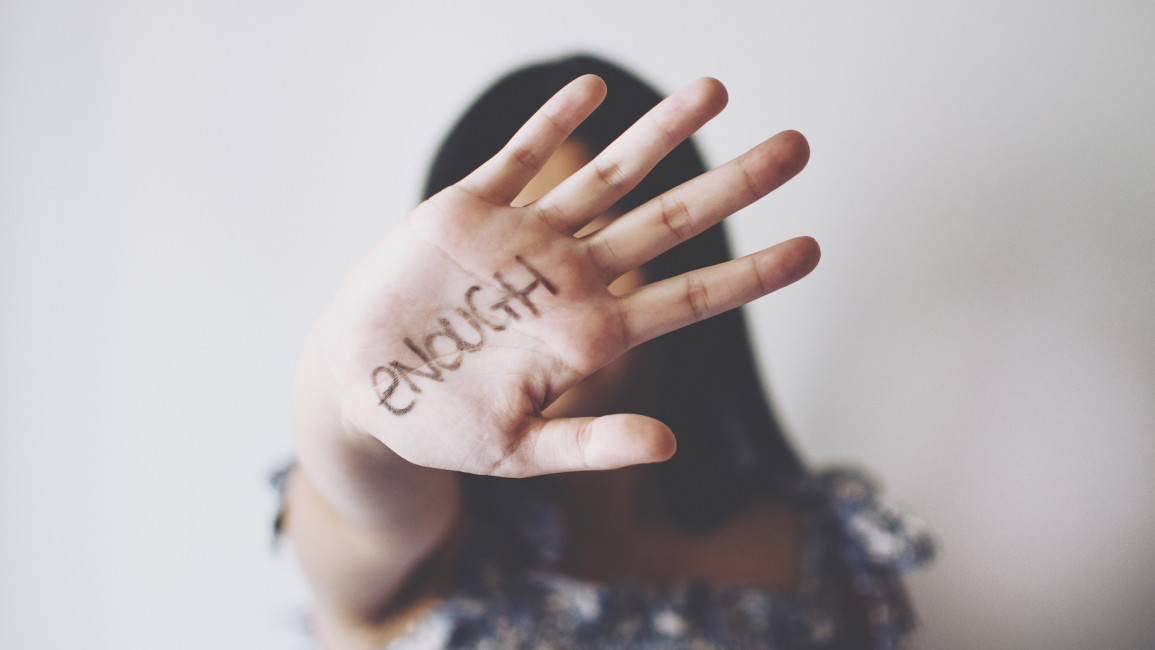Follow us on Facebook, Twitter and Instagram to stay connected
Domestic violence increase in Iraq as survivor shelters go underground
The global health crisis has triggered a significant downturn on Iraq’s oil-dependent economy, forcing millions under the poverty line.
Hanaa Edwar of the Iraqi Women's Network, told AFP there had been "a dangerous deterioration in the socioeconomic situation for families following the lockdown, with more families going into poverty, which leads to violent reactions".
Although victims turn to local authorities and community police, cases of domestic violence usually end up focusing on “reconciliation over justice for victims,” the Qatar-based news outlet reported.
The lack of laws against domestic violence in Iraq has forced
rights groups to establish underground shelters across the country in a bid to help survivors.
Twitter Post
|
This fills an important gap, as there is only one government shelter in the capital Baghdad, which only provides access to women through the order of a judge.
For the majority, access legal services is an almost impossible feat due to fears of fatal repercussions.
Gender-based violence in Iraq is commonplace.
Rights groups have long urged Iraqi MPs to pass a law against domestic violence, which has been pending since 2015.
According to a 2012 survey by Iraqi authorities, half of women participants said they do not believe the beating of "disobedient" wives constitutes violence.
Last year, Human Rights Watch called on Iraqi authoritiesto investigate and prosecute domestic violence and ensure appropriate sentences for violence against women.
"Domestic violence has always plagued Iraq," said Belkis Wille, senior crisis and conflict researcher at Human Rights Watch said in April. "We see case upon case of women and girls dying at the hands of their families, but Iraq's lawmakers have not done enough to save those lives."
While the Iraqi constitution expressly prohibits all forms of violence and abuse in the family, only the Kurdistan Region of Iraq has a law on domestic violence.
Iraq's criminal code, applicable in both Baghdad-controlled territory and the Kurdistan Region, criminalises physical assault but lacks explicit mention of domestic violence.
The penal code provides for mitigated sentences for violent acts, including murder, for "honourable motives" or for catching one's wife or woman relative in the act of adultery or sex outside of marriage.
However, the pandemic has aggravated the plague of sexual violence across the world.
According to UN data released in late September, lockdowns have led to an increase in complaints or calls to report domestic abuse. Argentina saw a 25 percent rise, Cyprus and France recorded a 30 percent increase and Singapore witnessed some 33 percent more reports.
Measures to limit the spread of the coronavirus have resulted in woman and children being confined at home, some of which with their abusers.
The closure of businesses and schools, as well as cultural and athletic activities, has deprived victims already weakened by economic insecurity of ways to escape violence.
The United Nations said only one country in eight has taken measures to lessen the pandemic's impact on women and children worldwide.
In July, the UN estimated that six months of restrictions could result in 31 million additional cases of sexual violence and seven million unwanted pregnancies.
The health crisis also undermines the fight against female genital mutilation and forced marriages, the UN warned.



